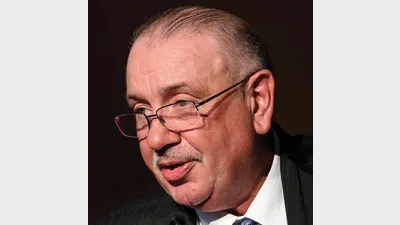Don’t let early access to super become the next pink batts



The Federal Government has moved rapidly to roll-out the economic stimulus and income support measures it believes are necessary to ease Australia’s passage through the COVID-19 pandemic with its measures, particularly hardship early access to superannuation, creating plenty of explanatory work for financial advisers.
What was already known about the Government’s early access superannuation move was it generated a rush of inquiries to superannuation fund call centres and gave rise to reports of people receiving unsolicited phone calls offering to help them facilitate early access to their superannuation.
Then, too, there have been those who have suggested that people might look to draw down their $10,000 in superannuation and recontribute under concessional tax arrangements.
Experienced public policy professionals will recognise that these are all signs that some unscrupulous individuals are looking to rort a mostly well-intentioned policy initiative. Indeed, those same experienced public policy professionals might ask whether the Morrison Government’s early access to super regime risks becoming the 2020 version of the Rudd Labor Government’s pink batts.
So the question is, has the Government put in place the necessary safeguards in circumstances where the Australian Taxation Office (ATO) rather than superannuation funds will be doing the identity and eligibility checks and the Australian Transaction Reports and Analysis Centre (AUSTRAC) will not be riding shotgun?
The ATO does a lot of work in the superannuation sphere in terms of helping resolve duplicate accounts and keeping a watch on contributions limits, but does it have the capacity and technology sufficient to deal with matching perhaps hundreds of thousands of applications for early release against the real status of superannuation fund members?
In short, in seeking to deal with a heavy workload of inquiries and applications, can the ATO be confident that when it tells a superannuation fund to pay $10,000 to a particular person, the individual concerned is actually who they say they are? And what happens if the ATO gets it wrong? Who is liable?
Little wonder, then, that at least some superannuation funds have signalled that they intend back-checking with members to ensure their intentions are clear.
While it is hardly surprising that superannuation funds have urged members to seek early access only as a last resort, it is notable that a survey conducted by Money Management revealed that most financial advisers were also urging caution on the part of their clients.
The common theme of responses to the survey was that advisers were urging their clients not to crystallise losses – something that was inevitable if they withdrew $10,000 from superannuation at or close to the bottom of the market.
While the Government is right in suggesting that superannuation balances belong to fund members and that they should be allowed to access them at times of extreme financial difficulty, it is also worth reflecting that the early access arrangements fit neatly with arguments put by some Government backbenchers about the future of superannuation and how it should be treated.
The Government’s announcement refers to the possibility of people being able to obtain early access over two years - 2020 and 2021. Importantly, the back half of 2021 will see Australia fully in election mode.
Recommended for you
In this episode of Relative Return Insider, host Keith Ford and AMP chief economist Shane Oliver discuss the latest shock consumer price index numbers, which rose to 3.8 per cent in October, as well as the shifting US market and calls for super funds to invest in infrastructure projects.
In this episode of Relative Return Insider, host Keith Ford and AMP chief economist Shane Oliver discuss the Reserve Bank of Australia’s cautious stance in response to persistent inflation, subdued growth prospects, and political shifts affecting the nation’s journey towards net zero emissions.
In this episode of Relative Return, host Laura Dew speaks with Rachel White, head of financial adviser services at Vanguard about how advisers can help Australians to feel confident in retirement.
In this episode of Relative Return Insider, host Keith Ford and AMP deputy chief economist Diana Mousina take a look at the Reserve Bank’s unanimous decision to leave rates on hold on Melbourne Cup Day and whether future cuts are still on the cards.








